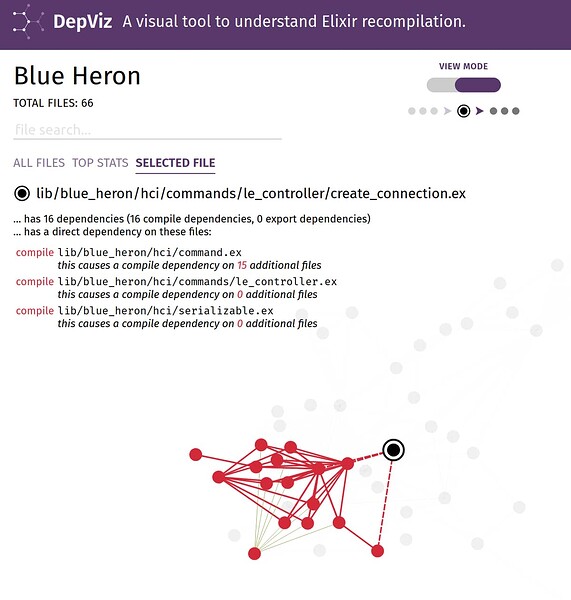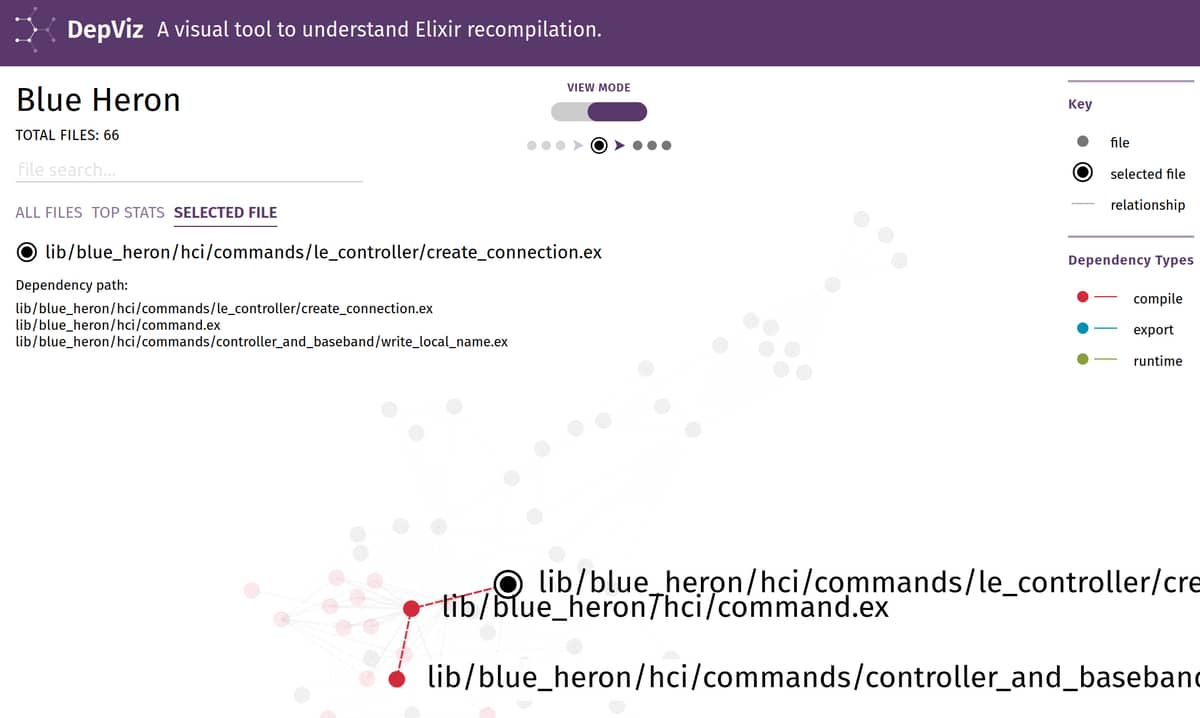mix xref graph is the main tool for tracking down compile-time dependencies.
If you haven’t seen it https://medium.com/multiverse-tech/how-to-speed-up-your-elixir-compile-times-part-2-test-your-understanding-f6ff3de5eb5d is a great article that really walks you through what causes a compilation dependencies, including the surprising/tricky bit about transitivity.
Another tool you could try is DepViz, which I wrote when I encountered the same pain that you’re encountering: DepViz - A visual tool to understand inter-file dependencies - #5 by axelson
DepViz will give you a view similar to what you’re asking for. Imagine you’re trying to figure out why create_connection.ex is recompiled, you hover over that file:
From that you can see that there’s 16 files that will cause create_connection.ex to be recompiled. Of those, 3 are direct dependencies, but 15 of them are transitive dependencies via the compile-time dependency on command.ex
(side-note: something is not quite right in the math there! Probably the other two top-level files are being double-counted because there’s a comptile-time dependency loop)
If you want to dig further into how a specific file is reached via command.ex then first click on create_connection.ex, then click on a file (e.g. write_local_name.ex):
From that we can now see that there is the dependency chain:
create_connection.excommand.exwrite_local_name.ex
Where create_connection.ex depends on command.ex at compile-time, and command.ex depends on write_local_name.ex (at compile-time as indicated by the red dotted lines, although a run-time dependency between these two files would also create a transitive compile-time dependency for create_connection.ex).
I hope this helps you track down your compile-time dependencies!
























